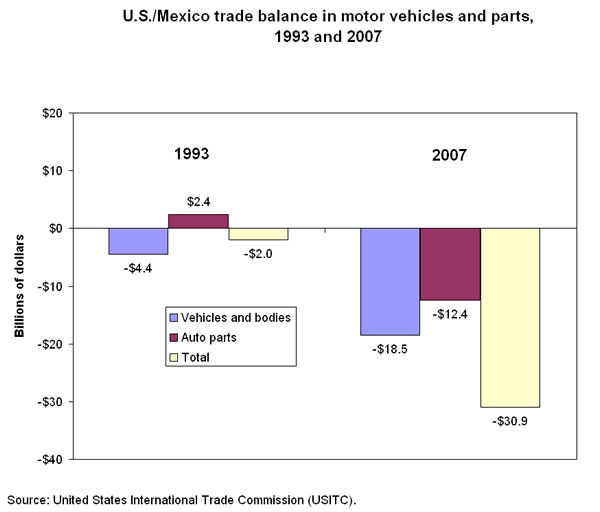See Snapshots archive.
Snapshot for February 27, 2008.
Ohio Voters and Candidates Take a Dim View of NAFTA
As the Democratic primary in Ohio enters its final week, Sen. Hillary Clinton and Sen. Barack Obama both agree that the North American Free Trade Agreement (NAFTA) is hollowing out America’s industrial heartland. Their criticisms of NAFTA are borne out in the Buckeye State, which has lost more than 200,000 manufacturing jobs over the last seven years.
Manufacturing cars, trucks, and auto parts is one of the most important industries in Ohio, and NAFTA has produced a large and growing trade deficit with Mexico in this crucial sector. While NAFTA has increased automotive trade between the United States and Mexico, the effects on Ohio and other industrial states have been overwhelmingly negative. U.S. exports to Mexico increased, but imports from Mexico increased much faster. In 1993—the year before NAFTA took effect—the United States had a positive trade balance in auto parts of $2.4 billion. By 2007, that balance was a trade deficit of more than $12 billion (See Chart).

Overall, including both vehicles and parts, the U.S. trade deficit with Mexico has ballooned from $2 billion in 1993 to nearly $31 billion in 2007. Nationwide, the auto trade deficit with Mexico has cost us 363,000 jobs. That is why Ohio voters want the next president to rewrite NAFTA, and that is why Senators Obama and Clinton are so critical of the trade deal as it approaches its 15th anniversary.
